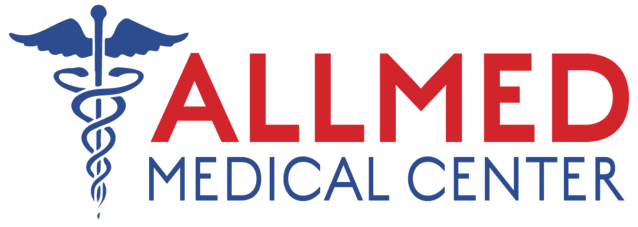
We Proudly Accept Medi-Cal and Medicare
Write your caption hereButton
Now Accepting Walk-ins!
Write your caption here

We Proudly Accept Medi-Cal and Medicare
Write your caption hereButton
Now Accepting Walk-ins!
Write your caption here

As a parent, knowing how to deal with respiratory syncytial virus (RSV) is a must. This notorious respiratory infection wreaks havoc on your little one's health, especially during the RSV season. It's time to take charge and educate yourself about RSV, how it harms your little one, and most importantly, how to protect them.
This is our comprehensive guide to the nuances of RSV, its impact on infants, and effective measures to safeguard your child's health. Here’s everything you need to know to stay one step ahead of this sneaky adversary.
What Is Respiratory Syncytial Virus?
Respiratory syncytial virus (RSV) is a virus that primarily affects the respiratory system, causing symptoms similar to a cold. The Centers for Disease Control and Prevention (CDC) estimates 2.1 million non-hospitalized cases involving children younger than 5. It is important to note that RSV usually causes mild symptoms in older children and adults but is hazardous for babies.
How Does RSV Manifest?
RSV presents itself as a cold-like illness in adults and older children. However, in babies, it may lead to more severe respiratory issues.
Early signs of RSV in babies:
- Coughing
- Wheezing
- Difficulty breathing
Understanding the signs is crucial for early detection and intervention.
How Does RSV Spread?
RSV is contagious and spreads through respiratory droplets dispersed to the air when an infected person coughs or sneezes. Infants become infected when they come in contact with the droplets or a contaminated surface. As a parent, being aware of potential sources of infection is vital in protecting your baby from RSV.
Risk Factors for RSV in Babies
- Age Considerations
Babies under the age of one are at a higher risk of severe RSV infection due to their underdeveloped immune systems. Understanding this vulnerability is crucial in implementing preventive measures.
- Premature Birth and Low Birth Weight
Premature babies, especially underweight ones, are more susceptible to RSV-related complications. Taking extra precautions for these infants is crucial during RSV season.
- Exposure to Smoke
Exposure to tobacco (smoke) heightens the risk of contracting RSV in babies. A smoke-free environment is essential in protecting your child from respiratory infections.
Importance of RSV Prevention
- The Severity of RSV in Babies
RSV may lead to severe respiratory distress in infants, requiring hospitalization in some cases. Prevention is paramount to avoid severe cases of RSV infection.
- Long-Term Consequences
Beyond immediate health concerns, RSV may bring long-term consequences to a child's respiratory health. This situation emphasizes the importance of proactive measures to prevent infection.
Some complications include:
Tips on How to Prevent RSV
- Wash Your Hands Frequently
Practicing good hand hygiene is a very effective way to prevent the spread of RSV. Regular hand washing when handling your baby reduces the risk of infection.
- Limit Exposure to Sick Individuals
You and your baby should avoid close contact with people showing signs of respiratory illness. This method is a proactive step in preventing RSV transmission, and you should politely communicate your concerns to friends and family to ensure a healthy environment for your child.
- Keep the Environment Clean
Regularly clean and disinfect surfaces your baby frequently touches to prevent the accumulation of RSV and other viruses. Pay special attention to toys, feeding utensils, and bedding.
- Get RSV Vaccines for Babies
Babies, mainly those born prematurely, benefit from RSV vaccination. Consult your pediatrician to determine if your child falls into this category and discuss the appropriate vaccination schedule.
Seasonal Patterns of RSV
- Peak RSV Season
Understanding when RSV is most prevalent helps you prepare. Though timings may vary per community, the peak season usually occurs in fall and winter. Take extra precautions during these months.
- Preparing for RSV During Peak Months
As the RSV season approaches, ensure you have the necessary supplies and information to protect your baby. Stock up on essentials, stay informed about local RSV trends, and adjust your routine accordingly.
Recognizing Early Signs of RSV
- Monitor Respiratory Symptoms
Be attentive to changes in your baby's breathing patterns. If you notice rapid or difficult breathing, promptly seek medical attention to rule out or address a potential RSV infection.
- Seek Prompt Medical Attention
Early intervention is vital in managing RSV. If you suspect your baby may have contracted the virus, don't hesitate to seek medical advice. Prompt medical assistance prevents the progression of symptoms.
Coping With a Baby Diagnosed With RSV
- Home Care Tips
If your baby is diagnosed with RSV, providing supportive care at home is crucial. Ensure they get plenty of rest and water consumption, and follow the prescribed treatment plan from your healthcare provider. In severe cases, hospitalization may be necessary. Trust your healthcare provider's recommendations for medical interventions to ensure the best possible care for your baby.
- Emotional Support for Parents
Caring for a baby with RSV is emotionally challenging. Seek support from friends, family, or support groups to navigate the emotional aspects of your child's illness. They may have helpful tips from past experiences that may aid you in your situation.
Recent Advances in RSV Research
Promising Treatments
Ongoing research is uncovering promising treatments for RSV. Stay informed about recent developments to ensure you have the latest information regarding prevention and care.
Vaccine Developments
Vaccination remains a focal point in RSV prevention. Stay updated on vaccine developments, especially if your baby falls into the high-risk category.
FAQs
- What is RSV, and how does it affect babies?
Respiratory syncytial virus is an airborne infection that primarily affects the respiratory system in babies. It often leads to severe respiratory distress, especially in infants under the age of one.
- Are there any specific preventive measures for premature babies?
Premature babies, with their underdeveloped immune systems, are at higher risk. Preventive measures include limiting exposure to sick people, practicing good hand hygiene, and RSV vaccination.
- Can older siblings transmit RSV to a baby?
Yes, older siblings may transmit RSV to a baby. It's crucial to educate older children about the importance of hygiene and limit their contact with the baby if they show signs of respiratory illness.
- Is there ongoing research for an RSV vaccine?
Yes, ongoing research focuses on developing an RSV vaccine. Staying informed about vaccine developments is essential, especially if your baby is at risk.
Protecting your baby from RSV involves a combination of preventive measures, awareness, and staying informed about the latest advancements in medicine. Understanding the risk factors, recognizing early signs, and participating in community efforts create a safe environment for your little one during the RSV season.
We hope we've enlightened you about RSV and how to provide maximum protection against it for your child. Now, it's time to look for a
reliable pediatric service to ensure your child's health and well-being stay optimal against the threat of RSV.
Stay One Step Ahead of RSV With AllMed Medical Center!
If you're searching online for "RSV symptoms baby" and "RSV vaccine baby," look no further than AllMed Medical Center!
We provide quality pediatric services with compassion and professionalism to ensure maximum protection against RSV and its complications. We understand the challenges of RSV, and we're here to help you stay one step ahead of its impact on your child.
Book an appointment today!
AllMed Medical CentersServing
Greater Sacramento
Allmed Medical Center | All Rights Reserved.










